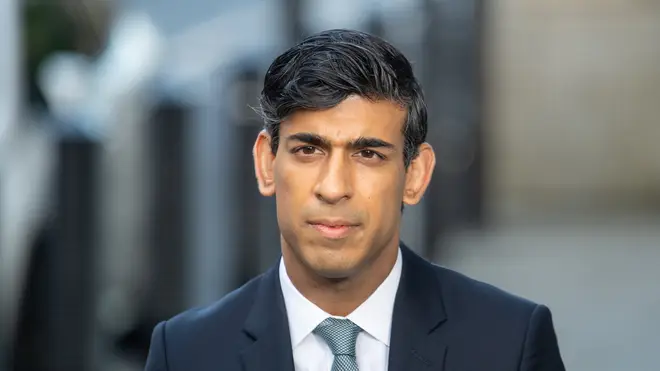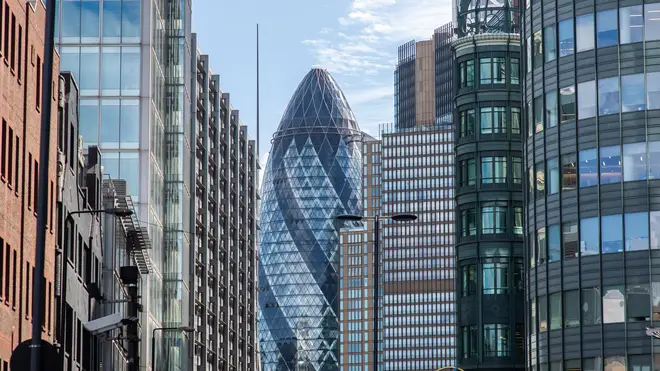
Simon Marks 4pm - 7pm
24 November 2020, 15:22 | Updated: 24 November 2020, 15:44

Rishi Sunak is to unveil his strategy for getting the country out of the financial hole caused by the coronavirus crisis, as the UK faces an unprecedented challenge to get through the pandemic.
Whereas a spending review usually details exactly that - how the country's finances will be spent - tomorrow's announcements are expected to focus on how money can be saved to pay for the estimated £350 billion cost for the pandemic.
At the weekend, Mr Sunak warned there was a need to find out "what the best way of returning to sustainable public finances is".
This year has left the UK in a difficult position, with the UK economy predicted to be around 10% smaller at the end of this year than it was before the pandemic.

Senior economist explains what tomorrow's Spending Review will bring

Earlier this year the independent Office for Budget Responsibility (OBR) estimated the economy would shrink by around 13% due to the effects of the coronavirus crisis, and although now it is not expected to be as severe, it is not going to be an easy way out.
But despite the looming financial difficulties, the Chancellor is set to announce more for a number of sectors such the NHS England, schools and defence services.
Read more: Everything you need to know about the new Covid tier system
However, the Institute for Financial Studies has warned that other sectors could be at risk of cuts - most notably prisons, courts and local governments.
What else is Rishi Sunak expected to announce?
Foreign Secretary Dominic Raab has repeatedly refused to deny reports that the Government plans to slash its international aid budget.
There has been speculation that Mr Sunak is to announce a temporary cut in aid spending next year to just 0.5% of national income, down from the legally binding target of 0.7%.
The current 0.7% baseline for the UK's aid budget, pledged in the Conservative Party's election-winning manifesto in 2019, is enshrined in law by the International Development (Official Development Assistance Target) Act.

"I do not support MPs getting a pay rise": Grant Shapps
Intelligence agencies and senior police officers will be brought together in a new "world-leading" counter-terrorism operations centre to disrupt threats, the Chancellor is set to announce.
Mr Sunak is expected to commit tens of millions of pounds in the Spending Review this week to the project which ministers hope will be operational within five years.
Read more: Matt Hancock prepared to have Covid vaccine early 'to show confidence'
Counter-terrorism police, intelligence agencies and the criminal justice system will be united under the proposal to co-ordinate expertise and resources in a state-of-the-art facility.
It is hoped that the Counter Terrorism Operations Centre will enable the UK to respond more quickly and effectively to terror threats, as well as combating hostile state activity and organised crime.
The Times reported a 5.6% increase to the national living wage - which was due to increase to £9.21 an hour in April - will be cut back to £8.90 an hour, a rise of 2%.
The paper said it followed a report from the Low Pay Commission - who said there were around two million workers paid at or below the minimum wage in April 2019 - claiming the full rise from the current rate of £8.72 an hour was unaffordable.
Employees aged 25 and over are entitled to the National Living Wage, with lower rates - the national minimum wage - applying to those who are younger.